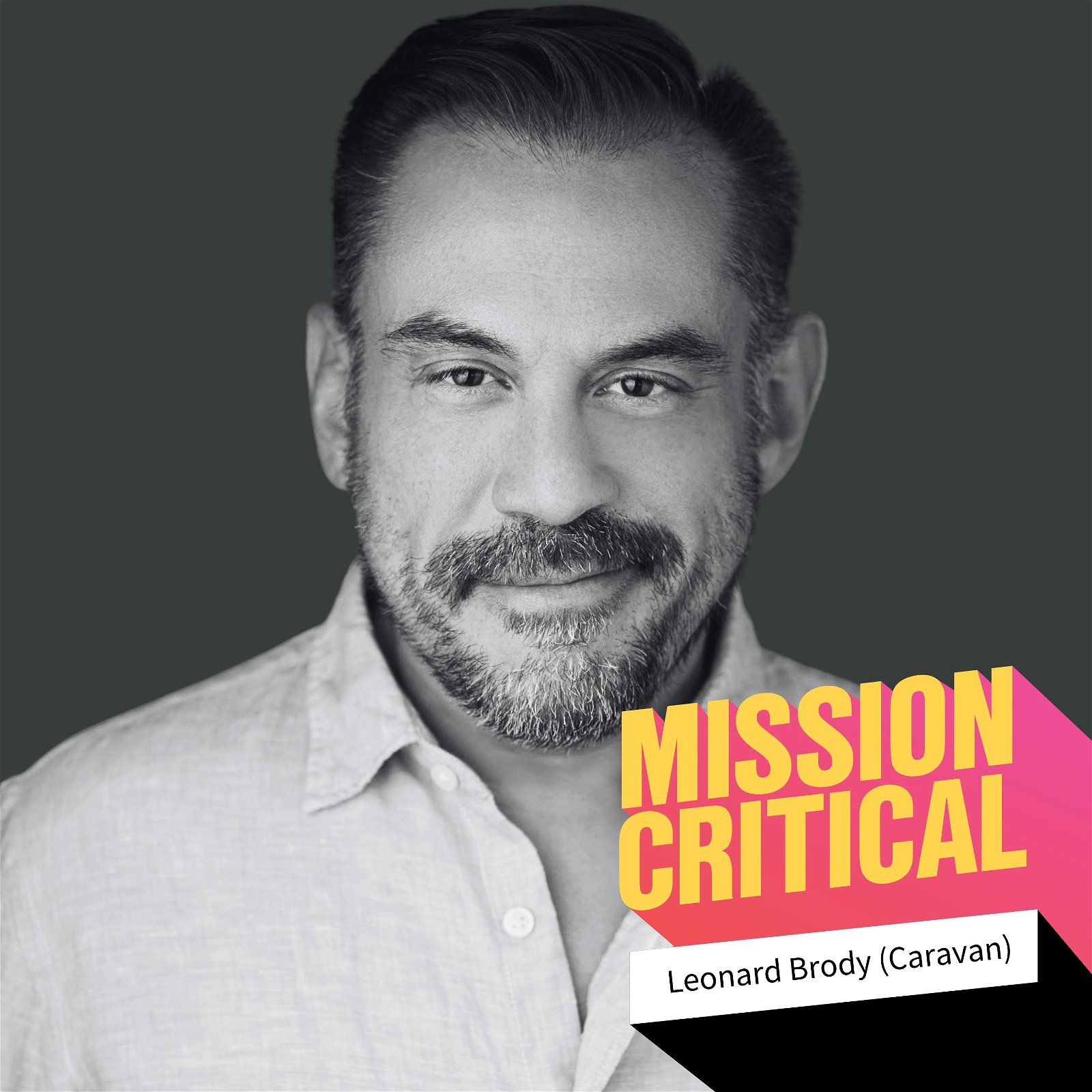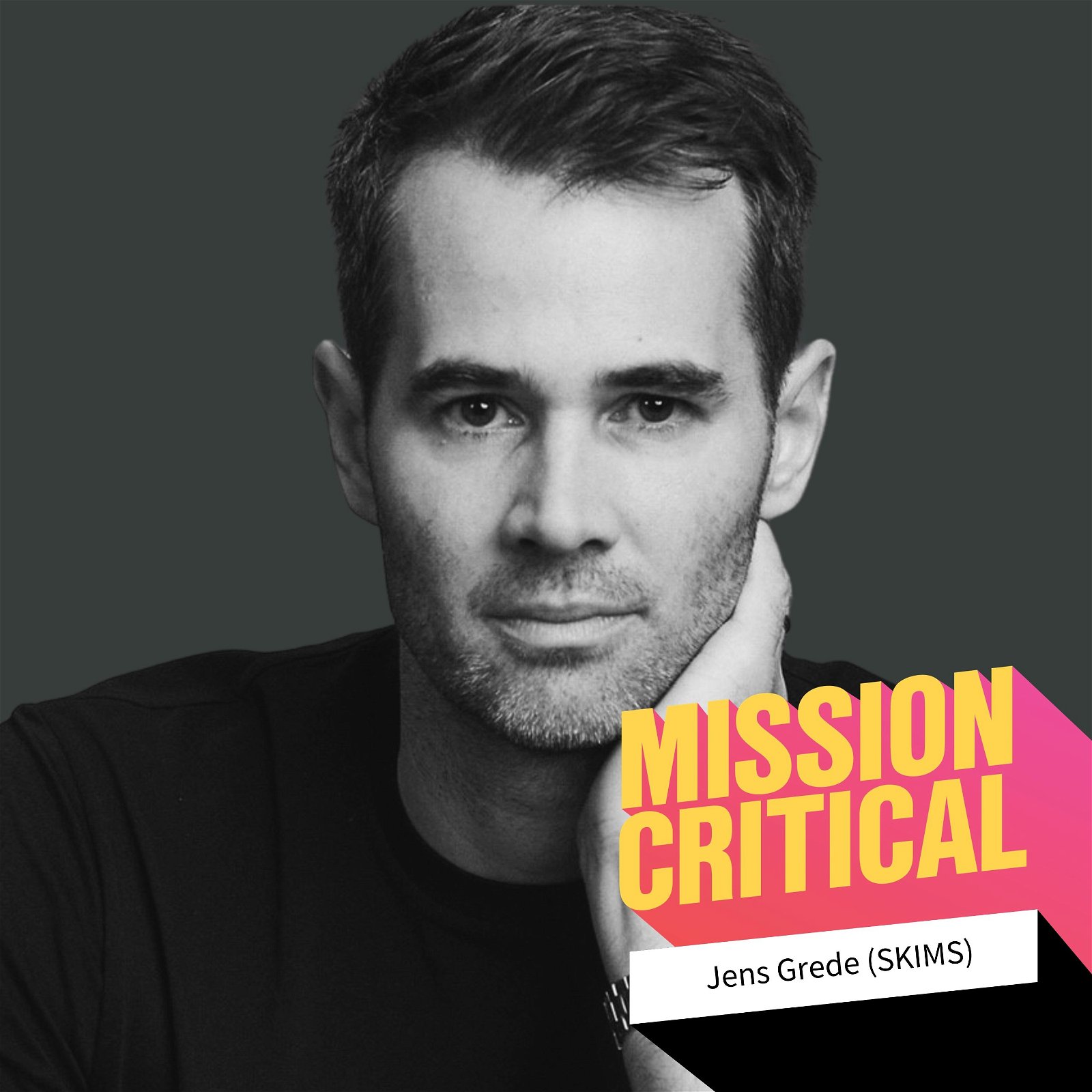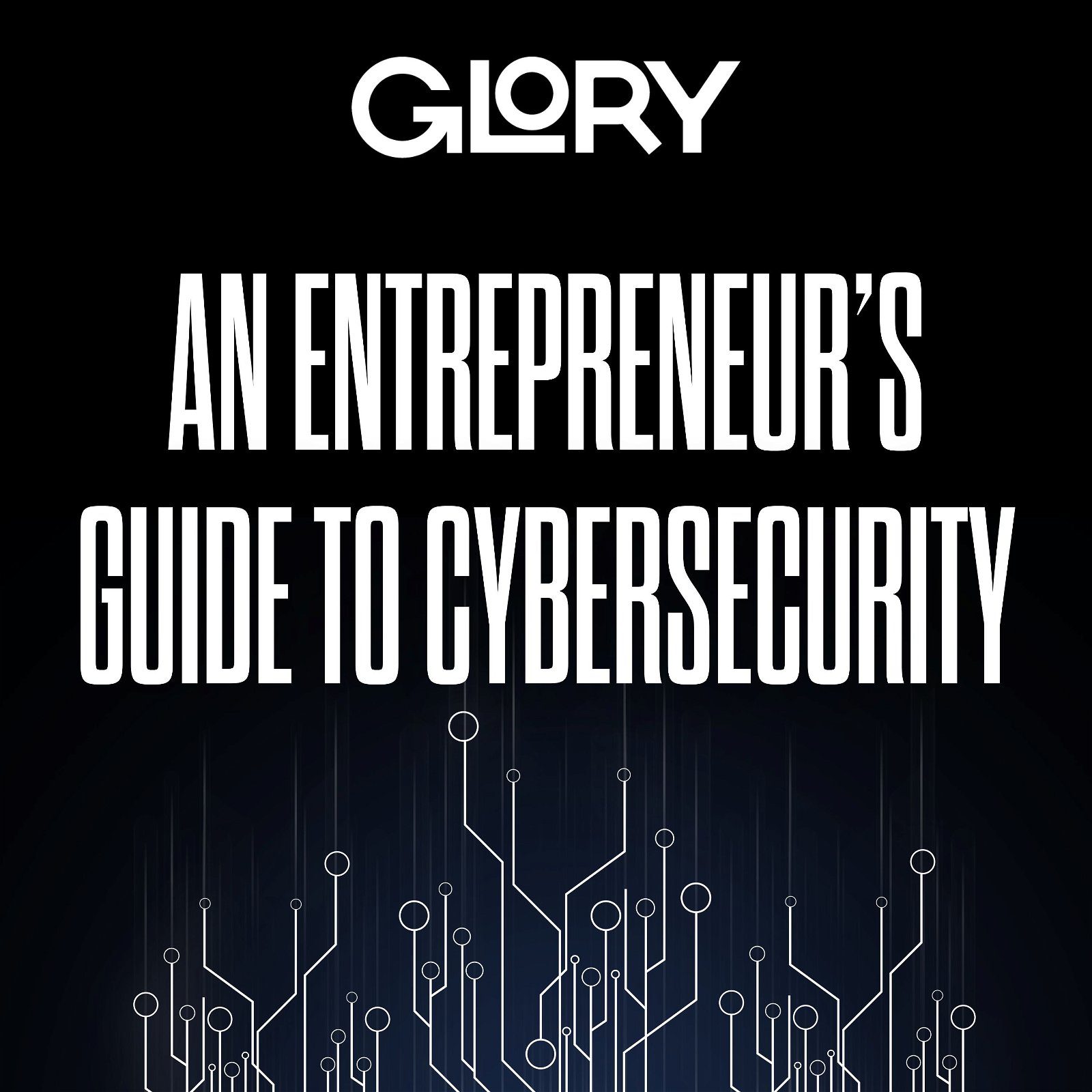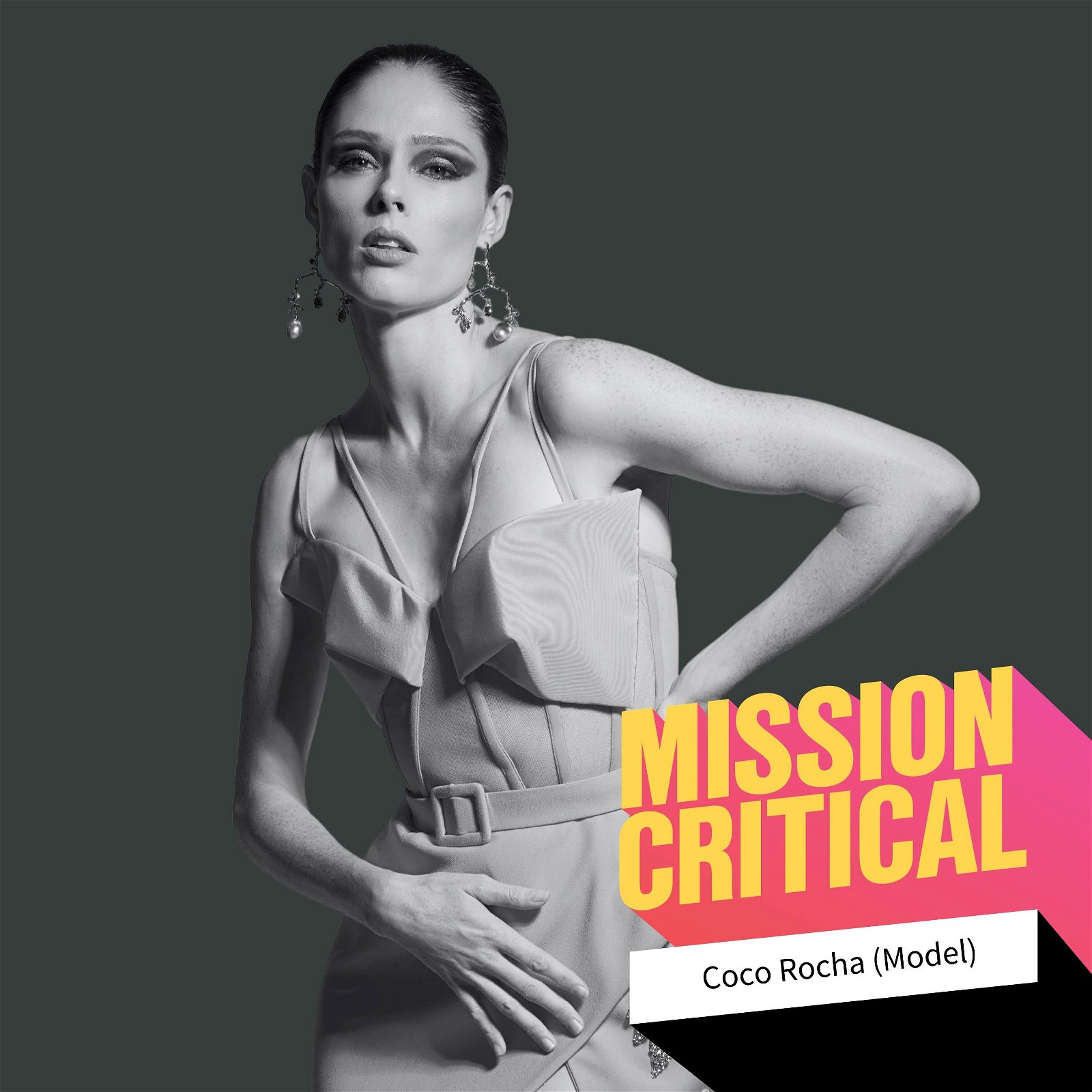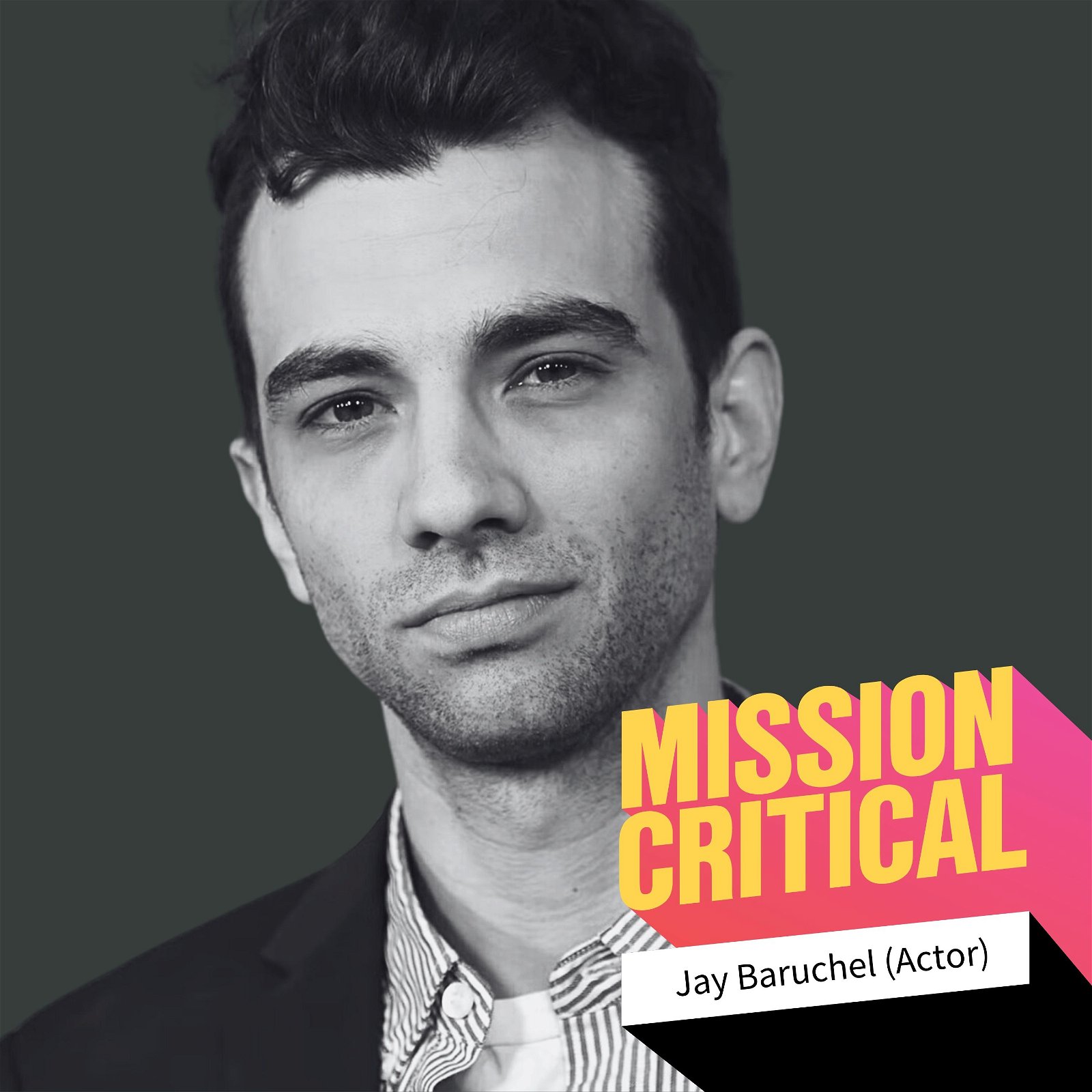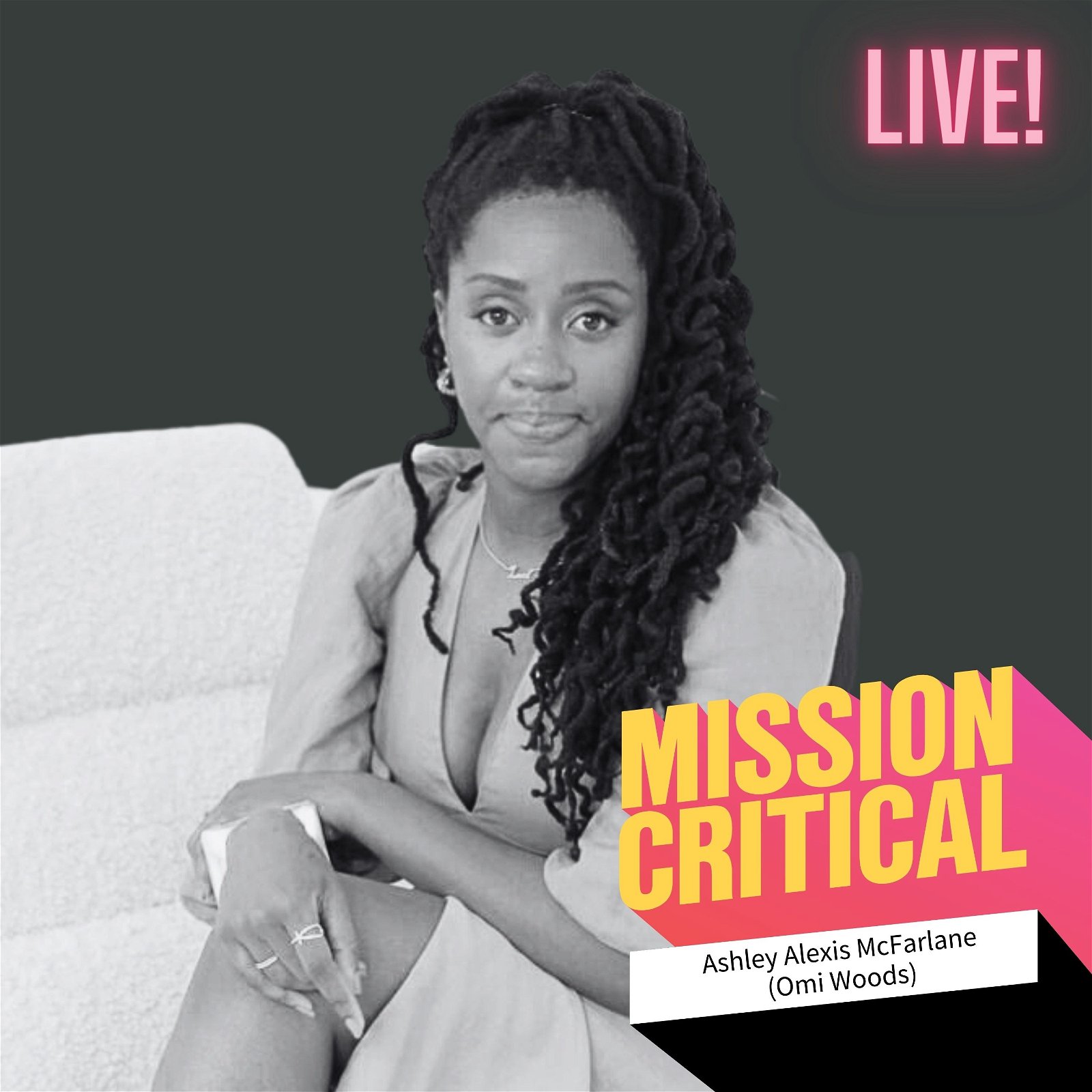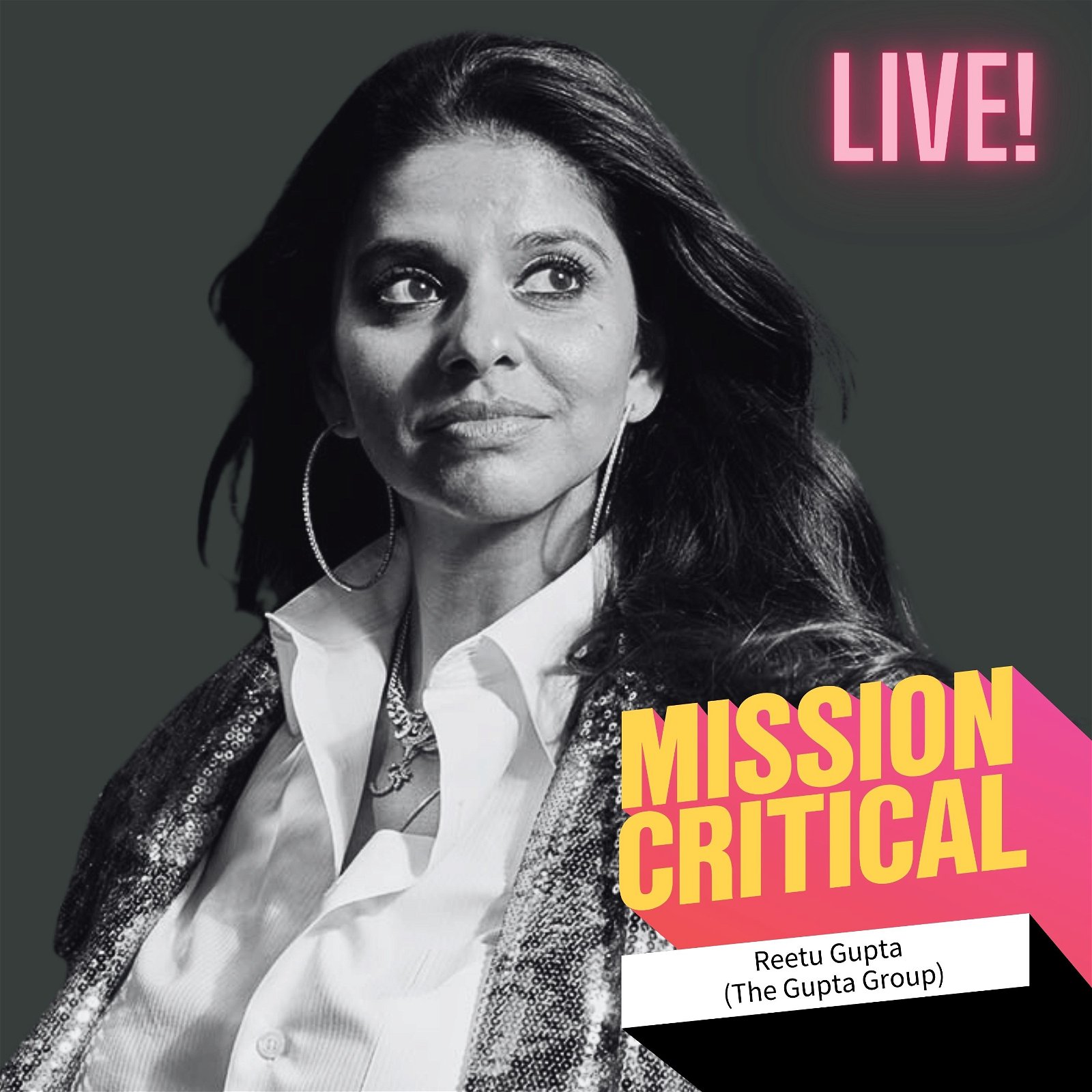Discover Mission Critical
Mission Critical

Mission Critical
Author: GLORY Media
Subscribed: 7,447Played: 32,258Subscribe
Share
© Copyright 2021
Description
Mission Critical is a podcast hosted by GLORY Media Editor-in-Chief Lance Chung about the purpose and values that drive today's most inspiring leaders. From innovative entrepreneurs to cultural game-changers, each episode will introduce you to someone new who is defining their community and redefining the status quo.
76 Episodes
Reverse
In this episode of Mission Critical, Lance welcomes David Shoemaker, the dynamic CEO and Secretary General of the Canadian Olympic Committee. As the world anticipates the 2024 Summer Olympics in Paris, Shoemaker offers a compelling look into his distinctive leadership style and what it's like to lead an organization as unique as his. Elsewhere in the episode, Lance and David discuss the unifying power of sport in fostering community and national pride, and why 2024 is a milestone year for achieving gender equity.
In the sequined, high-camp world of drag, few names shine as brightly as Brooke Lynn Hytes. From her transformative experience on RuPaul’s Drag Race to her burgeoning media empire as host of Canada’s Drag Race, she has not only captivated audiences with her stunning performances but has also become a beacon of queer visibility.Originally a pageant queen with a penchant for perfection, her time on Drag Race allowed her to break free from rigid expectations, embracing the fun and unpredictability of drag. This shift not only revolutionized her approach to the art form but also resonated deeply with fans worldwide, who saw in her a reflection of their own struggles and triumphs.In a time when queer communities face renewed challenges, she stands as a testament to the resilience and creativity that define drag culture. Her commitment to joy, visibility, and progress underscores why we need drag culture now more than ever. Drag queens remind us of our shared humanity, challenge societal norms, and celebrate the vibrant tapestry of identities that make up our community. In this episode of Mission Critical, Brooke Lynn Hytes joins Lance to talk about how she’s building her own media empire, the importance of queer visibility, and why we need drag culture now, more than ever.
Laurie May has long been a guiding force that continues to shape the narrative voice of the film industry. As co-founder and co-president of Elevation Pictures, a Canadian distribution and production company, Laurie's vision has always been to make an impact by telling a wide range of independent stories that resonate with audiences—to help viewers feel acknowledged and represented. (After all, cinema, along with all other forms of artistic expression, can serve as a powerful reflection of the world around us.) Since launching at the 2013 Toronto International Film Festival, Elevation Pictures has gone on to release award-winning films, including The Imitation Game, Room, Moonlight, Everything Everywhere All At Once, and most recently, Past Lives, The Zone of Interest, and Anatomy of a Fall. In this episode, Lance chats with Laurie about her fascinating career journey, the business of movies, and the importance of telling diverse stories.
In a world that is increasingly becoming defined by technological advancements and endless content scrolling, what role does a symphony orchestra play in the big picture of it all? It's a question that Mark Williams has had to confront in his role as CEO of the Toronto Symphony Orchestra (TSO). The challenge ahead is an interesting one—how do you honour the rich legacy of a century-old cultural institution without being beholden to that same history, to innovate, push boundaries, and charge into the future? For Williams—the first Black CEO of a major North American orchestra—it's about community. An orchestra is hardly a relic of the past but rather a dynamic force that has the power to open doors and minds by bringing people together, whether on the stage or in the audience. As the TSO embarks on its 101st year and its next century ahead, Williams envisions an orchestra that listens more than it speaks, touching lives in ways that go beyond the concert hall. On this episode, Lance chats with Mark about the power of music, diversity in the symphony orchestra, and what the orchestra of the future looks like.
Leonard Brody is an award-winning entrepreneur, venture capitalist, and bestselling author. As co-founder of Caravan, a venture with Creative Artists Agency (CAA), the two-time Emmy-nominated media visionary shares insights with Lance about the intricacies of building ventures for global icons like Carrie Underwood and Tom Hanks, and what brands should consider before entering into a partnership with celebrity talent.Here's what you can expect from this episode: Are we in the golden age of celebrity entrepreneurship? Or are we approaching celebrity brand burnout?How has the landscape of celebrity entrepreneurship evolved over the years? How does research create the foundation of a successful celebrity partnership? What is the difference between an endorsement, licensing, and partnership? What is the profile of the ideal celebrity entrepreneur?What are some of the safeguards that business owners can build in crisis PR moments where a celebrity has lost the public’s goodwill and trust?Make sure to subscribe to the Mission Critical podcast for more of today's greatest entrepreneurs and leaders.
You may know SKIMS for its celebrity co-founder, Kim Kardashian, but are you aware of its other co-founder? On this episode of Mission Critical, SKIMS CEO and co-founder Jens Grede joins Lance to talk about his fascinating entrepreneurial journey, his experience working with Kim, and the evolution of the celebrity-driven brand. Here's what you can expect from this episode: What makes a great brand?How Nike's Jordan brand influenced his and Kim's perspective on building SKIMS.How to harness culture to build your business.The impact of social media on the culture of fame and commerce.The evolution of the celebrity-driven brand.The biggest factor that has contributed to the success of SKIMS. Make sure to subscribe to the Mission Critical podcast for more of today's greatest entrepreneurs and leaders.
In GLORY Features, we're expanding our podcast to bring you more guests and their expert advice on what small business owners, entrepreneurs, and leaders should know, today. In this episode, host Lance Chung sits down with Leigh Tynan, Director of Online Security at TELUS. Tynan brings her wealth of experience to the table, offering a comprehensive overview of the current state of cybersecurity, discussing the latest trends, emerging challenges, and the proactive measures individuals can take to fortify their digital defenses.In a world where information is both currency and vulnerability, understanding the truths behind cybersecurity becomes paramount. Here's what you can expect to learn from this episode: The state of cybersecurity today.The key misconceptions around online security.What entrepreneurs and small business owners can do to protect themselves against cybersecurity threats. The specific tools and software available for individuals to enhance their cybersecurity.
Over the years, society has had to reckon with much-needed change in order to build a more equitable future. Like many other cultural institutions, the fashion industry has not been quick to change. Thankfully, there are those within the ecosystem who have pushed for progress by empowering others and embracing innovation. At the forefront of this change stands supermodel Coco Rocha, a name synonymous with the industry's transformation. One of the first in her generation to recognize the power of social media as a platform for agency and independence, she instilled a turning point for the fashion industry and its ability to advocate for itself. Beyond the catwalk, she's pioneering the next generation of models through her groundbreaking Coco Rocha Model Camp. In this episode, Lance and Coco discuss her entrepreneurial path, advocacy efforts, and what the future holds for fashion. This episode was sponsored by TELUS SmartWear Security. Learn more here: www.telus.com/en/smartwear-security
George Soleas is the President and CEO of the Liquor Control Board of Ontario (LCBO), one of the world’s most influential forces in the world of spirits. In this special live recording of Mission Critical Live: The Bold Conversations (presented by Veuve Clicquot), George chats with Lance and shares his extraordinary journey from a refugee in Cyprus to the C-suite. Starting as a chef in Ontario, he leveraged his passion for customer service into a diverse career, including steel manufacturing and winemaking, accumulating a diverse set of skills that would prepare him for an incredible career ahead. Driven by a commitment to continuous learning, he earned degrees in chemistry, metallurgy, and a Master's in Logistics. In this live episode, Lance and George discuss his entrepreneurial journey, the immense power of allyship, the LCBO's commitment to inclusivity, and the enduring value of lifelong learning.
Amidst the ever-evolving landscape of the fashion industry, where institutionalized norms have often stifled progress and diversity, a crescendo of voices is challenging the status quo. At the helm of this movement stands Lauren Chan, a powerful advocate for inclusivity and genuine representation. Her journey has been multifaceted—from her tenure as a magazine editor, where she championed diverse, size-inclusive coverage; to her role as a plus-size model; to co-founding her trailblazing brand, Henning. But it’s her unwavering commitment to reshaping the larger narrative around inclusivity and representation that truly defines her impact. The fashion and media industries have slowly started to recognize the need for change, for more inclusive and diverse representation. Chan, a Brantford, Ontario native living in New York City, embodies this paradigm shift. As the first openly queer plus-size Sports Illustrated Swimsuit rookie, she personifies the evolving standards of beauty and courageously challenges conventional norms. On this episode, Lance and Lauren chat about her dynamic career journey, embracing the model mindset, and fashion's need for disruption.
Barbora Samieian is the co-founder of SUNDAYS, a Vancouver-based e-commerce brand that's revolutionizing the furniture industry. The first of our Bold Conversations series (presented by Veuve Clicquot) to be recorded on the road, we headed to Vancouver and gathered a group of the city's leaders at the Carlino (located inside the Shangri-La Hotel) for this week's episode. Barbora is no stranger to the world of entrepreneurship. She's the visionary behind not one, but two successful ventures beyond SUNDAYS: FIELD & SOCIAL and RIDE CYCLE CLUB, both of which have flourished into multi-location businesses. But her journey didn't start there. Before embarking on her entrepreneurial path, Barbora worked at the United Nations Headquarters in New York and devoted her time to the non-profit sector in Vancouver, all after completing her graduate degree in International Development from the University of Cambridge.Born in Slovakia and moving to Vancouver at the age of twelve, Barbora's passion for community involvement and her commitment to championing women in business has been an integral part of her life's story. In this episode, Barbora joins Lance to talk about the intricacies of her entrepreneurial journey, her mission to create sanctuaries through SUNDAYS, her time working at the United Nations, and why Vancouver has become a hotbed for entrepreneurial talent. You'll gain insights into the mind of a passionate entrepreneur and discover how her diverse experiences have shaped her into the inspiring leader she is today.
In a world of fast fashion and fleeting trends, San Francisco-based Everlane has emerged as a beacon of ethical elegance, redefining the industry with its commitment to transparency, sustainability, and style. At the heart of this groundbreaking brand is its visionary founder, Michael Preysman, whose mission to revolutionize the way we consume and think about fashion has captured the hearts of consumers around the globe.What sets Everlane apart is its radical commitment to transparency. Unlike traditional fashion brands that conceal supply chains, Everlane proudly showcases the entire journey of its products, from sourcing of raw materials to the factories where the garments are made. Through their website, customers can explore the stories behind each product, learn about a factory’s fair labour practices, and even see the true cost of production alongside the retail price.In this episode, Lance and Michael sit down to talk about how his journey building Everlane into a major fashion influence, what's wrong with the world of "sustainability", and the power of optimism in business.
Jenn Harper is the CEO and founder of Cheekbone Beauty, an Indigenous-owned and founded cosmetics company that creates sustainable beauty products with the added goal of making a difference in the lives of Indigenous youth. In front of a live audience, Lance and Jenn sat down to discuss her entrepreneurial journey, the core tenets of Indigenous business, and how she got Cheekbone Beauty onto Sephora shelves.Held in a live format at Kissa Toronto located in the heart of the city's Entertainment District, our interview with Jenn is the latest in our Mission Critical: The Bold Conversations series in partnership with Veuve Clicquot, celebrating women entrepreneurs and leaders.Visit the Veuve Clicquot Open Database, the first free, global open database which lists and gives visibility to women entrepreneurs globally: https://www.boldopendatabase.com/enFor a full recap of the evening, plus photos from the evening, visit: https://www.gloryprofessional.com/mission-critical-jenn-harper-cheekbone-beauty/Editor's Note: Due to technical issues, the audio in this episode was impacted and not consistent with our usual quality. We apologize for the inconvenience.
In this episode of Mission Critical, we dive into the world of sustainability, innovation, and entrepreneurship with a true industry pioneer, Stuart Lombard, the visionary CEO and founder of ecobee.Stuart and Lance discuss his remarkable story of how he transformed his passion for environmental sustainability into the groundbreaking smart thermostat company, ecobee; the pivotal moments that shaped his remarkable career; and how Google's entry into the market impacted the trajectory of his industry-defining startup.
In an age when Canadian talent feels more prominently featured in mainstream Hollywood than ever before, actor Jay Baruchel stands as a distinct directorial and acting voice. From an early age, it was clear that he was destined for the spotlight. His breakthrough role came in the late 1990s with the critically acclaimed Canadian TV series, Popular Mechanics for Kids, where he first had the chance to showcase his quick wit to a broad national audience. Since then, Jay's built up an impressive CV of work, including major Hollywood films like Tropic Thunder, Knocked Up, and the How to Train Your Dragon franchise. In this episode, Jay joins Lance to talk about Canada's role in cinema, technology's impact on filmmaking, and his latest movie, the critically-acclaimed BlackBerry.
Ashley Alexis McFarlane is the creative visionary and founder behind Omi Woods, a luxury jewelry brand that focuses on creating contemporary and sustainable heirlooms that celebrate African culture. In front of a live audience, Lance and Ashley sat down to discuss her entrepreneurial journey, the significance of precious metals in African culture, and what the heirlooms of the future will look like. Held in a live format at the Pinterest Canada headquarters in Toronto, our interview with Ashley is the latest in our Mission Critical: The Bold Conversations series in partnership with Veuve Clicquot, celebrating women entrepreneurs and leaders. Visit the Veuve Clicquot Open Database, the first free, global open database which lists and gives visibility to women entrepreneurs globally: https://www.boldopendatabase.com/enFor a full recap of the evening, plus photos from the evening, visit: https://www.gloryprofessional.com/ashley-alexis-mcfarlane-omi-woods/
Known as the ‘Olympics of Tech,’ Collision is the brainchild of founder Paddy Cosgrave, who has built the annual tech conference into one of the biggest global gatherings of tech founders, entrepreneurs, startups, and world leaders. Since 2019, Collision has welcomed over 70,000 people to Toronto and is forecasted to have a total economic impact of $188 million over the course of its residency in Canada, to date. While in town for Collision 2023, Paddy sat down with Lance to talk about his humble beginnings, how to build an engaged community, and the most important discussion we’re having in tech right now. Plus, find out why he thinks Transformers 4 is one of the most significant movies ever made.
This episode is presented by Bold by Veuve Clicquot as part of the Mission Critical: The Bold Conversations series, which celebrates pioneering and visionary women leaders. Check out the Bold Open Database: www.boldopendatabase.comReetu Gupta is an activist, philanthropist, co-founder of Rogue Insight Capital Ltd., President of the Gupta Family Foundation, and Ambassadress of The Gupta Group. Under her leadership and that of her family, Reetu has built The Gupta Group into the largest private hotel development corporation in Canada, with over 23 properties within their ever-expanding portfolio. Filmed and recorded from their newest location, Canopy by Hilton Toronto Yorkville, Lance and Reetu discussed her experience working her way up through the business, the dynamics of running a family enterprise, and how she's ushering in a new generation of women- and BIPOC-led hospitality professionals.
Apply for the Veuve Clicquot Bold Woman Award: https://www.veuveclicquot.com/en-ca/bold-by-veuve-clicquot/aboutWhat is it that draws us to comedy? Some of our favourite experiences and memories center around moments of laughter. But beyond the obvious, perhaps another reason that explains the magnetic effect of comedy is its ability to speak to the human experience—to illuminate ways in which we are all alike, and also ways in which we are different. Today’s top comedians are masters of observation and have conquered the ability to use comedy as a trojan horse to distill the human experience and, sometimes, complex issues in a relatable and funny way. Today’s guest embodies the very best of what comedy is and can be. Allana Harkin is an award-winning director, producer, actor, and comedian who grew up in Hamilton, Ontario, cutting her teeth in the community as a member of an all-women comedy troupe called the Atomic Fireballs. That’s where she first met Samantha Bee, her friend and eventual partner-in-comedy when she became the producer and correspondent of the talk show, Full Frontal with Samantha Bee. In her role, she was tasked with tackling complex and politically-charged issues like global warming and abortion bans through the filter of comedy, offering a mirror to the joys and maladies of society. It’s her uncanny ability to reflect the human experience that eventually earned her an Emmy award in the Outstanding Short Form Nonfiction or Reality Series category. Nestled in Yorkville’s cozy and luxurious Kasa Moto restaurant, Allana joined Lance in front of an audience for another recording of Mission Critical live, presented by Veuve Clicquot, to talk about the power of comedy, her career trajectory, and how humour can be used as a force for progress and activism. Enjoy!
When Turning Red debuted in early 2022, Canadians rejoiced. Directed by Canadian filmmaker, animator, and Academy Award winner Domee Shi (who became the first woman to solo direct a Pixar feature film), the animated film told the story of a young Chinese-Canadian tween girl torn between meeting the expectations of her immigrant parents and her experience navigating the changes that we must confront as we come of age. It was not only a love letter to Toronto (where Domee grew up) but also one to Asian-North American communities and diaspora who continue to grapple with the realities of intergenerational and cultural trauma. It was also an ode to the often awkward, clunky, and imperfect experience of growing up, manifested through the eyes of the film’s protagonist, Meilin, who just so happens to turn into a giant red panda throughout the film. Presented by BOLD by Veuve Clicquot, in this episode, I spoke with Domee about self-discovery, her early influences (Spirited Away!), representation, and why transformation remains such a strong theme in her work, career, and life.
Comments
 United States
United States





